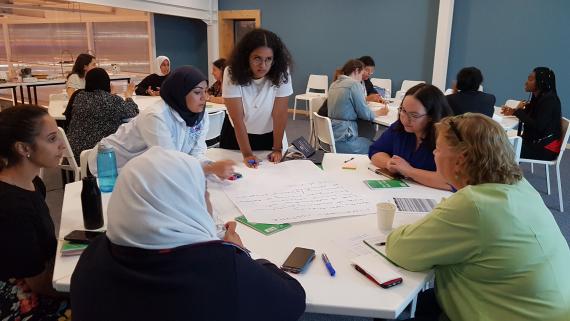Publications - Regional Programme Gulf States
Country Reports
Short political reports of the KAS offices abroad
The Konrad-Adenauer-Stiftung is a political foundation. Our offices abroad are in charge of over 200 projects in more than 120 countries. The country reports offer current analyses, exclusive evaluations, background information and forecasts - provided by our international staff.
Event Reports
The Konrad-Adenauer-Stiftung, its educational institutions, centres and foreign offices, offer several thousand events on various subjects each year. We provide up to date and exclusive reports on selected conferences, events and symposia at www.kas.de. In addition to a summary of the contents, you can also find additional material such as pictures, speeches, videos or audio clips.
Policy Reports
Analyses of current topics in the Gulf region
The Policy Reports of the Regional Programme Gulf States offer insights and analyses on current developments in the Gulf States and the Gulf region at large. They contribute to a better understanding of the region and serve as a platform for German, European and the Gulf scholars to exchange and disseminate ideas and knowledge about the region for the broader policy community.




